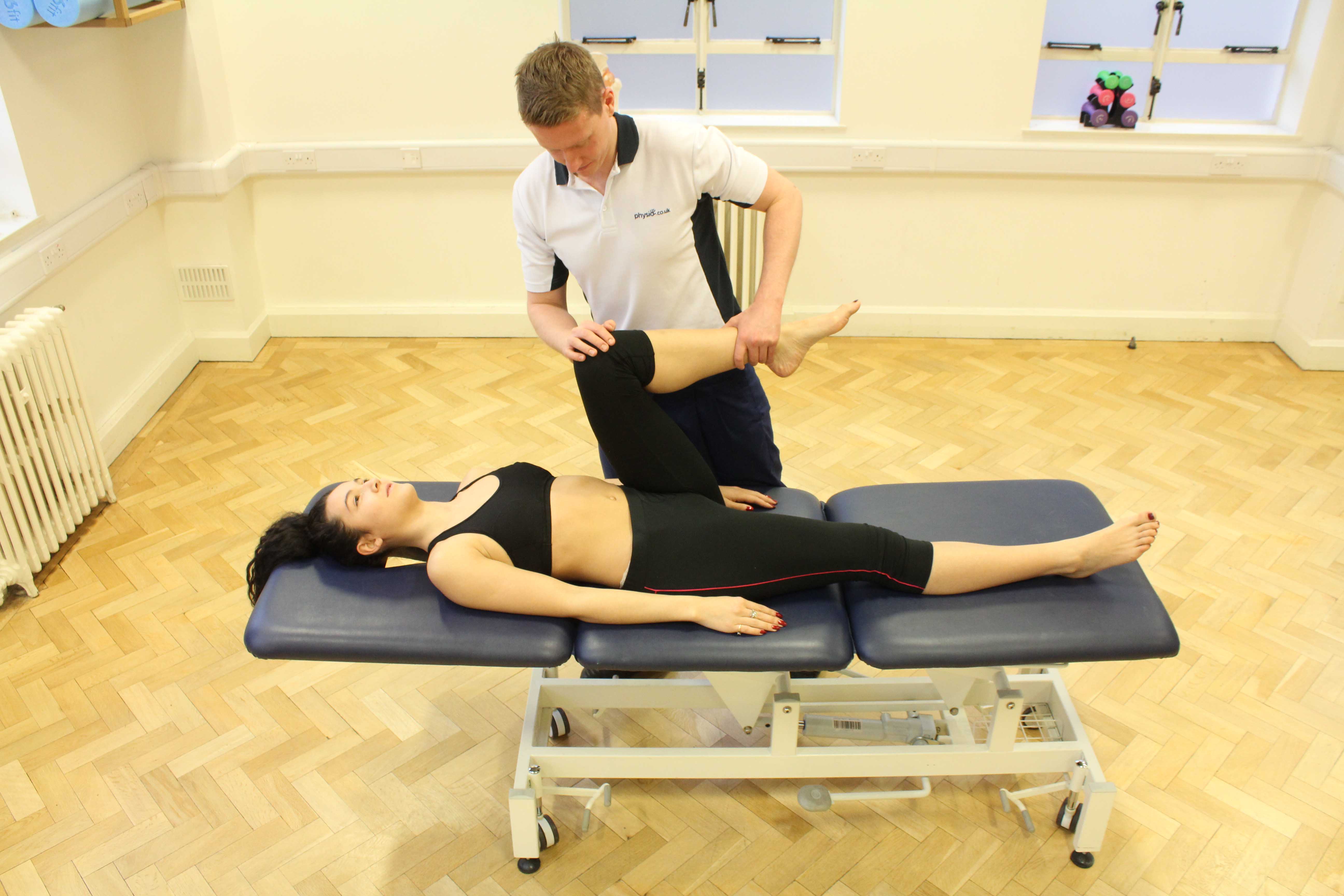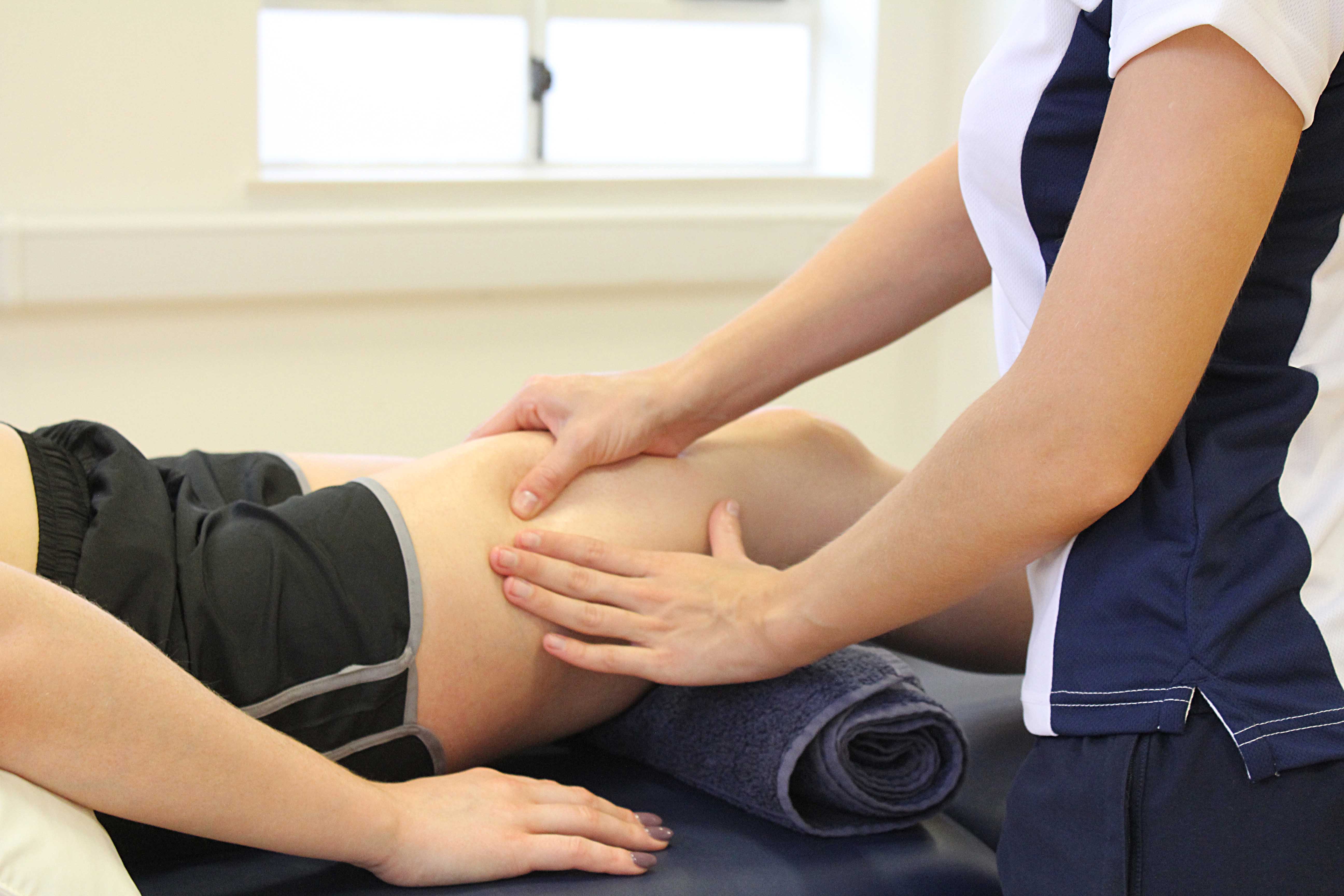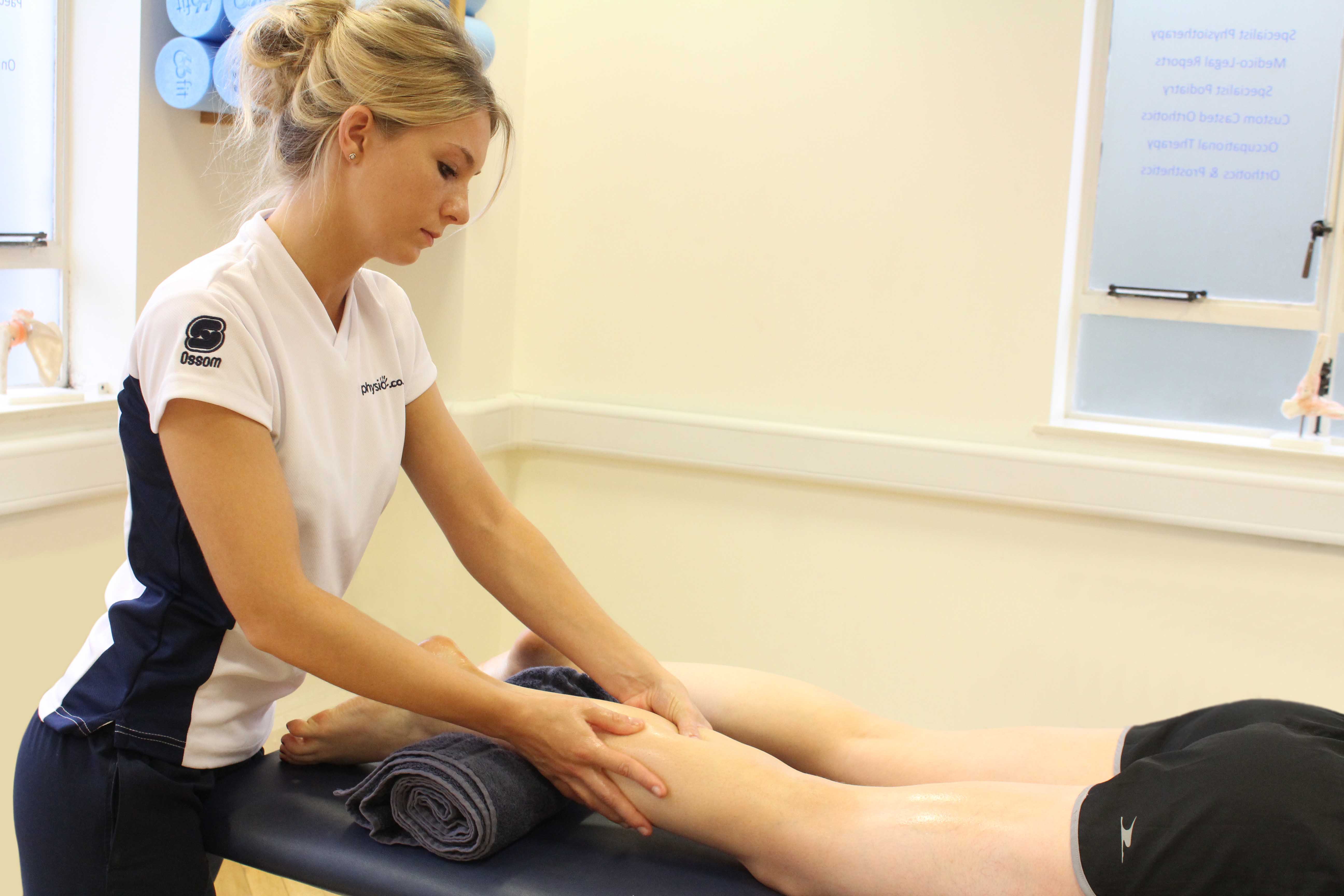What is polymyositis?
Polymyositis is inflammation of more than one muscle is the body which can cause pain and discomfort. Polymyositis usually affects and causes pain and weakness in large muscle groups such as the shoulders, thighs, hips and back. The cause of polymyositis is an autoimmune condition which means the body’s immune system attacks its tissues leading to inflammation of the muscles. The reasons behind polymyositis are unknown but it may be due to genetic factors and is more common in adults although juvenile polymyositis affecting children is possible.
Although there is no cure for polymyositis, it is important that the symptoms remain under control so you are able to continue with your normal activities of daily living. Physiotherapy is an effective way to minimise your symptoms and help you lead an active and healthy lifestyle. Physio.co.uk has specialist physiotherapists that can work with you to develop a personalised programme to suit your needs.
 Above: Muscle strength testing conducted by senior musculoskeletal Physiotherapist
Above: Muscle strength testing conducted by senior musculoskeletal PhysiotherapistWhat are the symptoms of polymyositis?
There are many different symptoms of polymyositis and some may affect you more than others. Your physiotherapist at Physio.co.uk will tailor your treatment programme to specifically manage your symptoms. Symptoms of polymyositis include:
- Muscle pain
- Weakness
- Fever
- Weight loss
- Stiffness
- Loss of range of movement
- Inability to carry out normal activities of daily living
- In rare cases, polymyositis can affect breathing
- Fatigue
- Reduced bone strength
 Above: Rolling soft tissue massage of the quadriceps muscles
Above: Rolling soft tissue massage of the quadriceps musclesHow is polymyositis diagnosed?
There is no test for polymyositis and therefore your doctor will look at a combination of factors including your symptoms and blood tests. It is important to begin your physiotherapy programme as soon as you have a diagnosis of polymyositis to give you the best possible outcome of your treatment. Possible tests to diagnose polymyositis include:
- Blood tests
- Physical examination
- Electromyography (EMG) to test the nerves in your muscles
- Biopsy (a small amount of muscle is removed to be tested for polymyositis)
How will physiotherapy help with polymyositis?
Physiotherapy can help manage the symptoms of polymyositis in a number of ways. Your physiotherapist at Physio.co.uk will provide you with a full assessment which can then help create an individualised treatment programme to minimise any difficulties you were having. Physiotherapy can help in the following ways:
- Increase strength
- Increase range of movement
- Reduce pain
- Improve ability to continue with your normal activities of daily living/sports
- Reduce inflammation
- Reduce breathing difficulties
- Improve cardiovascular fitness
 Above: Deep tissue massage of the gastrocnemius muscle by specialist MSK therapist
Above: Deep tissue massage of the gastrocnemius muscle by specialist MSK therapistWhat physiotherapy will be used for polymyositis?
The physiotherapy decided by Physio.co.uk will depend on your current symptoms and your goals. Your treatment plan will therefore be adapted to your needs and your physiotherapist will encourage you to play an active role in your rehabilitation programme. The types of physiotherapy that may be used include:
- Strengthening exercises
- Range of movement exercises
- Hydrotherapy
- TENS
- Cardiovascular activity
- Pain control modalities
- Pacing advice
- Provision of specialist equipment to help at home
Summary
Polymyositis is an autoimmune condition that causes inflammation and pain in a number of muscles in the body. It is more common in adults although a form called juvenile polymyositis is possible. Symptoms include pain, weakness, inflammation and sometime difficulties with breathing. Physiotherapy is very helpful in managing these symptoms and allowing you to maintain an active lifestyle. Physio.co.uk has experienced physiotherapists who can work closely with you to meet your goals and needs. Please call Physio.co.uk on 0330 088 7800 today to book an appointment. or alternatively book an appointment online

 0330 088 7800
0330 088 7800

































